|
|
|
|
A couple of weeks ago we published an article that seemed to strike a chord with The Conversation’s readers. “Dreading footy season? You’re not alone – 20% of Australians are self-described sport haters” used survey data to examine why so many people have a negative reaction to sport. It was read more than 17,000 times and was well received.
In the normal course of events, this would be pleasing, but on this occasion, it was faintly alarming too. For some months we had been working behind the scenes on a plan to hire a new editor to increase our coverage of sport. What if our readers don’t share our enthusiasm?
Sport is so finely woven into the fabric of life in Australia and New Zealand that it’s difficult to ignore. No serious media outlet can pretend it doesn’t exist, and I think it would be a mistake to do so.
The Conversation’s unique model of pairing academic experts with journalists to produce thoughtful explanatory journalism means we are perfectly placed to bring something different to sports coverage – something available nowhere else.
The Conversation works with the sports scientists at the major universities and we have access to experts in areas like biomechanics and human movement and everything from psychology to physics. We can cover sport as a health topic or as a science story, shedding light on everything from how Sam Kerr curls a football into the net to how Nathan Lyon can spin a cricket ball.
We also work with lawyers, sociologists and historians who can tell us about the role sport plays in our lives, and how it is celebrated in the arts, theatre, music and literature.
In Life Cycle, his poem about Australian rules football, Bruce Dawe described how Victorian babies are wrapped in club colours from birth and then initiated into a lifetime’s barracking in which “the tides of life will be the tides of the home team’s fortunes”.
Our new sports editor, Niall Seewang, started work this week and has already produced thought-provoking pieces on the branding of Tasmania’s new AFL team and Brisbane’s tricky task in preparing to host the 2032 Olympic and Paralympic
games.
Niall’s been busily getting to know all the best writers on sport and planning our coverage of the Paris 2024 Olympics. If you’re an academic with an interest in sport you should get in touch with him and if you’re a reader please keep an eye out for our coverage.
And for Niall, welcome to The Conversation, and to crib one more line from Dawe’s poem, may it always be “three-quarter-time with the scores level and the wind advantage in the final term”.
|

|
Misha Ketchell
Editor
|
|
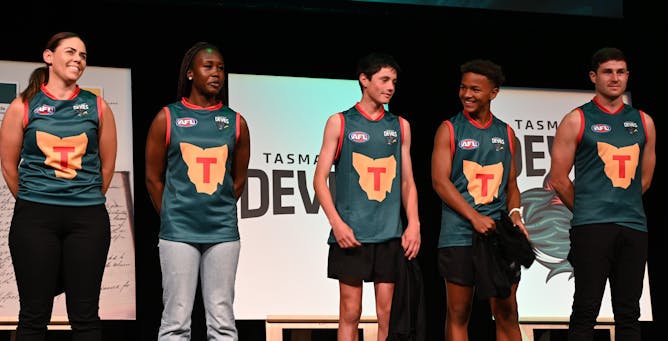
Andrew Hughes, Australian National University
The AFL’s newest team, the Tasmania Devils, launched on Monday night, drawing on its rich football history in a blaze of myrtle green, primrose yellow and rose red.
|
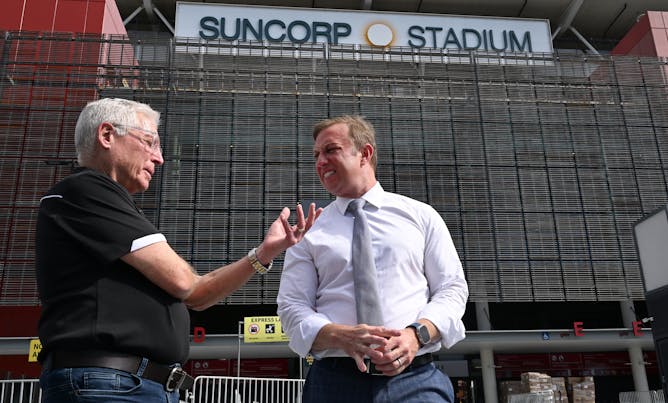
Leonie Lockstone-Binney, Griffith University; Judith Mair, The University of Queensland; Kirsten Holmes, Curtin University; Paul Burton, Griffith University
Queensland premier Steven Miles is walking a tightrope in trying to deliver a spectacular yet sustainable, legacy-driven 2032 Brisbane Olympics.
|
Best reads this week
|

Peter Tesch, Australian National University
Russian propaganda and talking points on Ukraine continue to be repeated, without being challenged, two years after the war began.
|
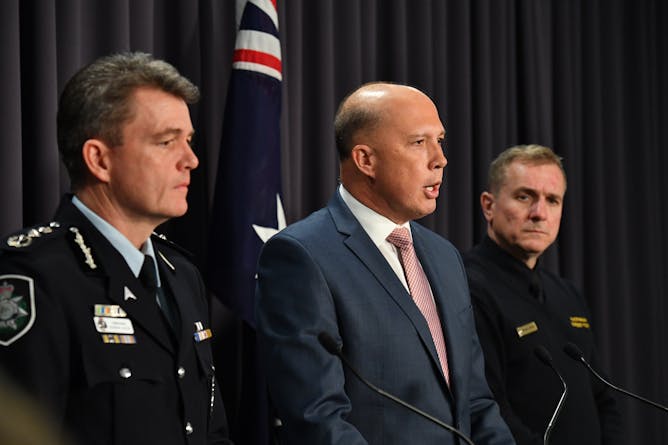
Judith Brett, La Trobe University
In his second Quarterly Essay, Lech Blaine tries to make sense of former Queensland policeman Peter Dutton. Who is he? What drives him? And what does he hope to achieve if he wins government?
|

Jane Turner Goldsmith, University of Adelaide
Adele Dumont’s affecting memoir, The Pulling, draws the reader into the secrecy, shame and impulses behind trichotilllomania, or compulsive hair-pulling.
|
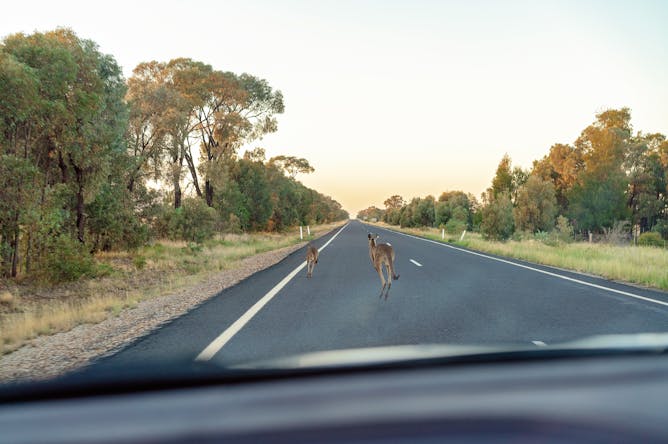
Graeme Coulson, The University of Melbourne; Helena Bender, The University of Melbourne
Many measures commonly thought to reduce the toll of animals injured and killed on our roads aren’t effective. But there is evidence to support other solutions.
|
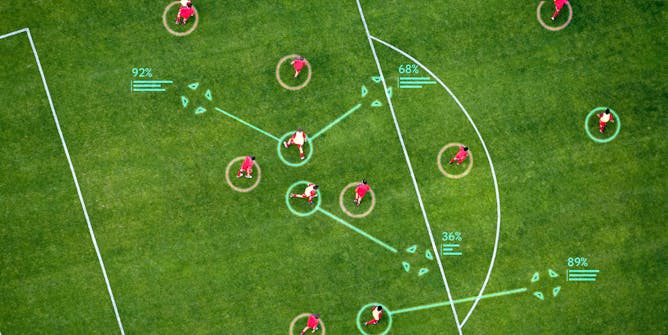
Mark Scanlan, Edith Cowan University
A new AI system may improve soccer tactics in 90% of corner kicks – but is it ready for the big leagues?
|
Podcasts
|
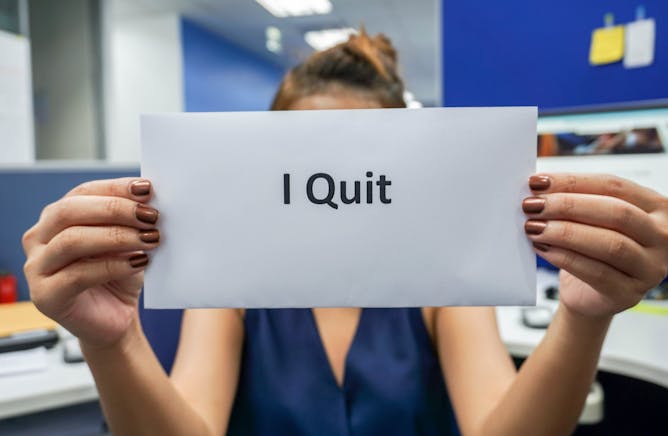
Mayuree Moonhirun/Shutterstock
Gemma Ware, The Conversation
Grace Augustine talks about her interviews with people who’ve chosen to leave their jobs over climate change concerns on The Conversation Weekly podcast.
|
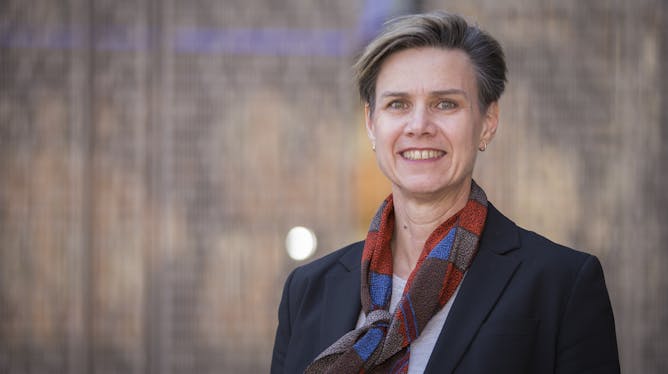
Imaged Provided by Lesley Seebeck
Michelle Grattan, University of Canberra
TikTok has come into the spotlight after the US. congress proposed a bill to force it's sale away from Chinese owned company ByteDance. To discuss this we're joined by Cyber expert Lesley Seebeck.
|
Our most-read article this week
|

Ken Nosaka, Edith Cowan University
There are ways to incorporate strength-training components into walking to improve your muscle strength and balance.
|
In case you missed this week's big stories
|
-
Paul Kidson, Australian Catholic University; Herb Marsh, Australian Catholic University; Theresa Dicke, Australian Catholic University
A major survey of Australian school principals finds they are copping abuse from parents and students on top of huge workloads. Many experienced leaders say they might leave the profession.
-
Luke Beck, Monash University
Religious discrimination laws have been highly controversial in Australia in recent years. Here’s where they started, and where we are now.
-
Tanya Davison, Swinburne University of Technology; Sunil Bhar, Swinburne University of Technology
A new review looks at whether psychological therapies, such as cognitive behavioural therapy, are an effective way to treat older people in aged care with symptoms of depression.
-
Albert Van Dijk, Australian National University; Shoshana Rapley, Australian National University; Tayla Lawrie, The University of Queensland
Conditions deteriorated in 2023 but were stlil relatively good for ecosystems and agriculture. Unfortunately, the alarming decline of threatened species continued.
-
Nick Garvin, Macquarie University
New estimates suggest that if just one state, New South Wales, scrapped its stamp duty, an extra 100,000 Australians would move homes each year.
-
Peter Martin, Crawford School of Public Policy, Australian National University
Prime Minister Anthony Albanese wants Australia to go “toe to toe” with the US in supporting green energy. Leading economists surveyed by the Economic Society are unimpressed.
-
Bruce Baer Arnold, University of Canberra
If it can happen to a future queen, it can happen to you. Maybe it already has.
-
Grant Duncan, City, University of London
With voter confidence already low, the National-led coalition will have difficulty fulfilling pre-election promises while delivering a prudent budget in May.
-
Milovan Savic, Swinburne University of Technology
Platforms like Facebook, Instagram and TikTok vie for our attention and boast billions of users. Ultimately, what matters is connection.
-
Marina Yue Zhang, University of Technology Sydney; Wanning Sun, University of Technology Sydney
TikTok has mobilised its vast user base to contest a possible US ban, plus it could challenge it in court as an infringement of people’s free speech.
|
|
| |
|
|
|
The Conversation AU
Melbourne VIC, Australia
•
Full Time
|

|
|
University of Wollongong
Wollongong NSW, Australia
•
Full Time
|

|
|
|
|
| |
| |
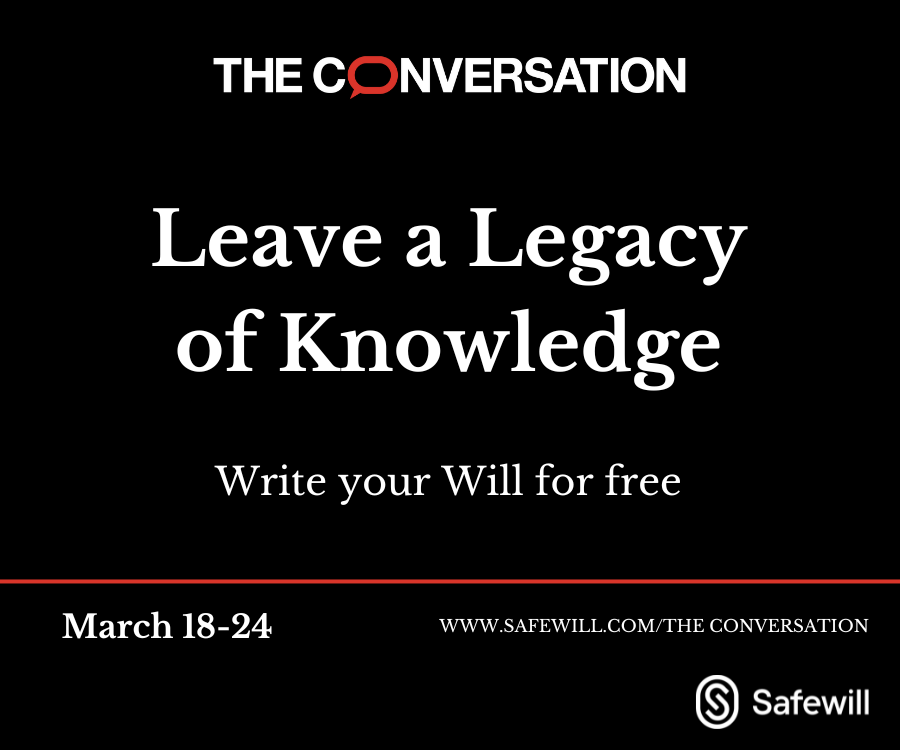
|
| |
| |
| |
Featured Events, Courses & Podcasts
|
View all
|
|
1 January 2023 - 7 October 2026
•
|

|
1 February 2023 - 25 November 2029
•
|
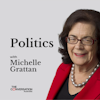
|
|
|

|
1 April - 31 December 2024
•
remote access
|

|
|
|
|
| |
| |
| |
| |
| |
|
|
|
|
|
|
|